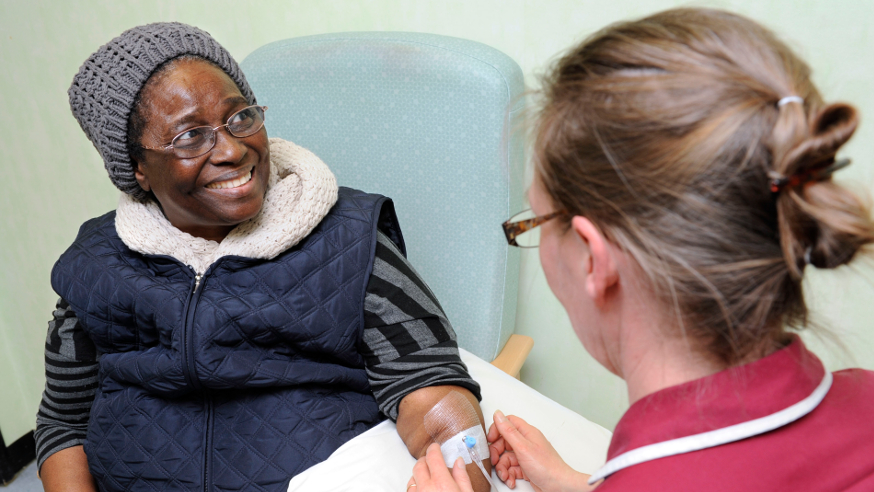
Home to our early-phase trials, the ICR’s and The Royal Marsden’s joint Drug Development Unit (DDU) is one of the leading and largest phase I clinical trials centres in the world.
It brings together lab-based scientists with clinical researchers to run sophisticated phase I trials that match treatments to the precise molecular and genomic profile of patients’ tumours.
The eventual goal is fully personalised medicine, with drugs exploiting the specific weaknesses of a tumour at a particular point in time.
Later-stage clinical trials are carried out by the Clinical Trials and Statistics Unit (ICR-CTSU), which designs, conducts and analyses multicentre randomised controlled trials of cancer treatment – collaborating with trialists in the UK and overseas.
See our list of clinical trials
Next-generation treatment
Spanning breast cancer, urological cancers, head and neck cancers, and rarer cancer types, many of these trials have directly influenced routine clinical practice within the NHS and worldwide.
We’re also committed to innovation in clinical trial design for next-generation treatment regimes – such as those that adapt therapy to outpace cancer evolution, or that combine treatment approaches to block the paths to resistance.
We’re using biomarkers to select patients who are likely to benefit from a particular drug, or to monitor patients’ response, and new statistical techniques to evaluate different kinds of treatment used in combination.
And we are going even further – collaborating within the UK and globally to build the evidence base for effective treatments, and leading efforts to embed them into healthcare.